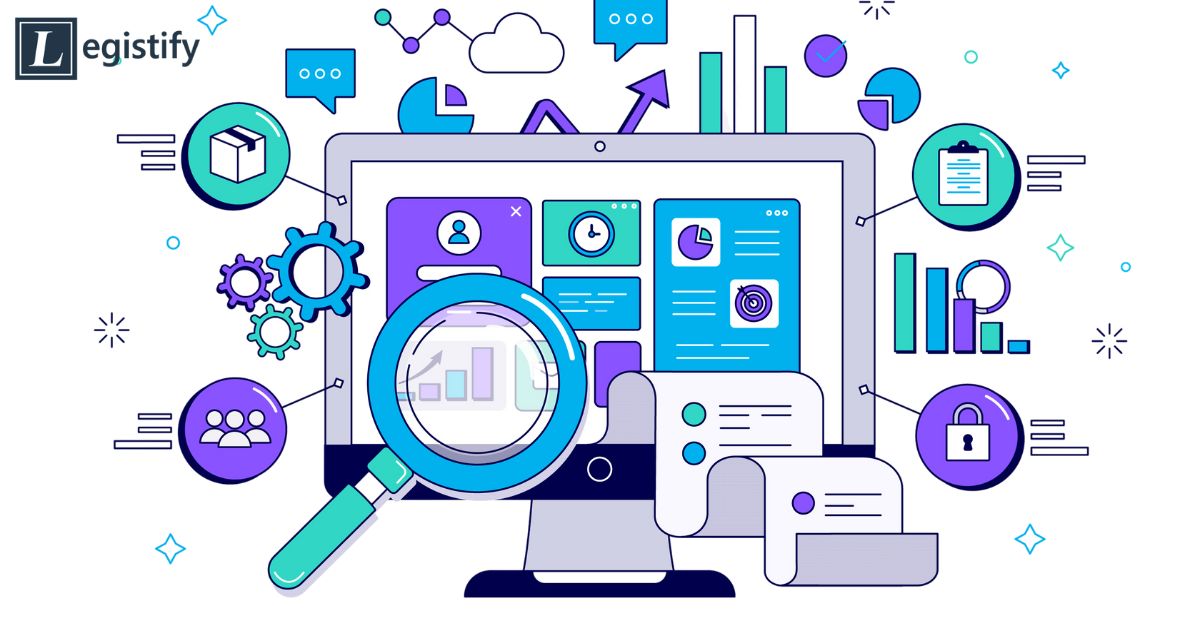Predictive Analytics for Legal Firms: An Overview
Litigation management is a complex process that requires meticulous attention to detail, strategic planning, and a keen understanding of the various laws and regulations. It involves the management of legal proceedings, including negotiations, document management, and trials. In recent years, the integration of predictive analytics has emerged as a transformative force in the field of law, revolutionising how legal professionals approach and navigate litigation. This article explores the different roles of predictive analytics in litigation management and its implications.
What is Predictive analytics in legal decision-making for law firms?
Predictive analytics in litigation management involves the use of data, statistical algorithms, and machine learning techniques to identify the likelihood of future legal outcomes based on historical data. In litigation management, predictive analytics offers a wide range of benefits, such as helping legal professionals anticipate legal risks, optimise case strategies, and enhance decision-making by leveraging insights derived from vast datasets.
One of the most significant roles of predictive analytics is to analyse large volumes of data, allowing legal teams to identify patterns and trends that may not be apparent through traditional methods. By leveraging these insights, legal professionals can make more informed decisions and develop more effective strategies.
By predicting the likelihood of a case going to trial, legal professionals can make more informed decisions about whether to settle or continue with litigation. This can help to save both time and money for all parties involved. Further, the use of predictive analytics in litigation management has become increasingly important in recent years. It offers a wide range of benefits, including the ability to anticipate legal risks, optimise case strategies, and enhance decision-making.
Use cases of AI predictive analytics for lawyers
As the legal landscape continues to evolve, it is likely to see different advancements in predictive analytics and its application in litigation management. Here are some of the more common applications of predictive analytics:
Prediction of Case Outcomes
Predictive analytics enables legal professionals to assess the potential outcomes of legal cases with a higher degree of accuracy. By analysing historical case data, the technology identifies patterns, precedents, and relevant factors, empowering lawyers to make informed predictions about the likely verdicts or settlements.
Resource Allocation
Efficient allocation of resources is critical in litigation management. Predictive analytics helps law firms and legal departments allocate resources judiciously by forecasting the resources needed for specific cases. This includes manpower, time, and financial resources, optimising overall efficiency.
Early Case Assessment
One of the significant advantages of predictive analytics is its ability to facilitate early case assessment. Legal professionals can assess the strength of a case, potential risks, and the likelihood of success at an early stage. This empowers lawyers to make strategic decisions, such as whether to pursue a settlement or proceed to trial.
Automated Task and Calendar Management
Predictive analytics and AI contribute to efficient task and calendar management by automating scheduling, setting reminders, and predicting potential bottlenecks in the litigation process. These tools enable legal professionals to proactively manage deadlines, reducing the risk of oversights and enhancing overall case management.
Data-Driven Legal Research and Analysis
The integration of AI in legal research brings forth an era of data-driven decision-making. AI algorithms, capable of processing vast legal databases, provide legal professionals with quick access to statutes, case law, and precedents. This accelerates the research process, allowing for a more comprehensive and insightful foundation for legal arguments.
Predictive Cost Estimation and Budgeting
Predictive analytics aids in estimating the potential costs associated with litigation. By analysing historical cost data and case characteristics, legal professionals can use predictive models to forecast expenses, facilitating more accurate budgeting and financial planning.
AI-Enhanced Collaboration and Communication
AI-driven collaboration tools enhance communication within legal teams. Features such as automated document sharing, intelligent messaging, and collaborative editing tools contribute to a seamless exchange of information, fostering teamwork and ensuring all team members are aligned in their strategies.
Predictive Analytics for Risk Mitigation
Predictive analytics identifies potential risks early in the litigation process, allowing legal professionals to proactively develop strategies to mitigate those risks. This not only enhances the likelihood of a favourable outcome but also minimises unexpected legal challenges, contributing to effective risk management.
AI-Powered Analytics and Reporting
AI-driven analytics tools provide in-depth insights into case performance, team productivity, and other key metrics. By generating reports based on data-driven analysis, legal professionals can make more informed decisions, identify patterns, and optimise strategies for ongoing and future cases.
Challenges Relating to Predictive Analytics in Law firms
Data Privacy
When legal professionals use predictive analytics to make decisions, they must prioritise data privacy and confidentiality. This means they need to keep personal and sensitive data secure and comply with relevant data protection laws and regulations. They should also be open with clients about how they collect and use data and get consent when needed.
Data Bias
Predictive models can be biased, which can affect their accuracy and fairness. Legal professionals need to identify and address biases in the data and algorithms they use. They should also test the models regularly to ensure they are fair across different demographic groups. Involving people with diverse perspectives and expertise can help reduce biases and ensure fair outcomes.
Regulatory Compliance
Legal professionals must follow legal and professional regulations when using predictive analytics. They should comply with data protection, confidentiality, and privacy laws, as well as professional standards and guidelines. They should also consider the ethical implications of using predictive analytics, such as transparency and accountability.
By considering these ethical and legal factors, legal professionals can use predictive analytics responsibly and ethically. They can build trust with clients, keep data confidential, and maintain the integrity of the legal profession. Ethical and legal considerations are critical for using predictive analytics effectively in the legal field.
Successful implication of AI predictive analytics in the legal industry
Predictive Analytics in Litigation Management for a Law Firm
Law firm XYZ was able to effectively utilise predictive analytics in litigation management for more informed case strategy and settlement decisions. They integrated our litigation management tool to manage their historical case data, court decisions, and relevant factors such as jurisdiction, legal arguments, and judge precedents. This allowed the firm to estimate the likelihood of case outcomes and make data-driven decisions. Consequently, they were able to assess the strength of their cases and negotiate settlements more efficiently, which ultimately led to better outcomes for their clients.
Predictive Analytics in Litigation Management for an In-House Legal Department
The legal department of enterprise ABC was successful in enhancing its risk management strategies through the implementation of predictive analytics offered by our litigation management software. They integrated our tool with their existing systems to analyse historical contract data, industry trends, and relevant regulations to identify potential compliance risks and regulatory violations. This allowed them to proactively develop compliance strategies, allocate resources efficiently, and mitigate legal risks.
Conclusion
The use of team analytics in litigation management has revolutionised the way legal professionals approach their work. Tools such as LegisTrak have paved the way for a paradigm shift in the legal industry, enhancing efficiency and mitigating risks. Predictive analytics in litigation management has become an integral part of the legal industry, empowering legal professionals to make strategic and informed decisions based on data-driven insights. As technology continues to advance, the integration of predictive analytics is likely to become a standard practice in the legal landscape. By utilising predictive analytics in litigation management with the right tool, legal teams of enterprises can deliver optimal outcomes for their clients.




